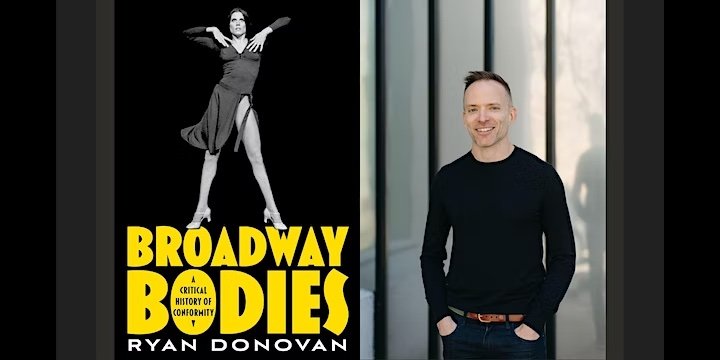EVENTS
Changing Broadway for Good
August 9, 2023 | 12:30-1:30pm
Have you noticed how the shape of Broadway has changed? Casting is always a political act, situated within a power structure that historically has given preference to certain bodies and treated others with ambivalence.
Join the author of the acclaimed new book Broadway Bodies and Duke University professor Ryan Donovan in conversation with three changemakers whose work is having an impact: Stephanie Lexis, founder of Broadway Body Positivity Project; Andrea Prestinario, co-founder of Ring of Keys, and Garrett Zuercher, founder of Deaf Broadway. Hear about how these artists and advocates are effectively fighting size discrimination, creating community and raising visibility for queer and trans women and gender non-conforming artists, and making American Sign Language theatre with Deaf artists for the ASL community. This panel will discuss past, present, and future strides towards making Broadway more equitable.
This free event will have ASL interpretation.
BROADWAY BODIES Book Launch
MARCH 3, 2023 | 7:30pm SOLD OUT
“'Must Be Heavyset': Casting, Size, and the Body Politics of Broadway Musicals”
February 17, 2023 | 9:30am to 11:00am
Broadway has body issues. It's no secret that body shaming, fat phobia, and fat stigma run rampant in the United States but less-discussed is the fact that these phenomena shape the bodies we see onstage in the most globally popular theatrical form: the musical. This talk opens with a discussion of size and how the casting of Broadway musicals reiterates dominant cultural attitudes toward fat women. I will then explore how casting and recasting Effie in the 1981 musical Dreamgirls became the locus for a myriad of labor issues. Fat shaming on Broadway certainly did not start and end with Dreamgirls. Broadway musicals, even ostensibly fat-positive ones like Hairspray (2002), are complicit in labor practices that prolong fat stigma at the same time they enforce gendered and racialized stereotypes of size-sometimes including racist, sexist, and fat phobic representations. Bringing together insights from various fields from theater studies to sociology and fat studies, I will discuss how fat phobia and the costume technology of padding, commonly known as fat suits, work together to stigmatize non-conforming bodies. Broadway musicals reify the structural inequalities that regulate gender, race, and size in the US. As such, Broadway typically relegates fat women to playing comic sidekicks or roles associated with food when it casts them at all. Broadway is a battleground for body politics, and it demands that fat ladies sing.



